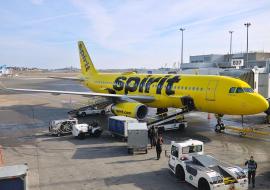IATA: Over 25 Million Jobs at Stake on the Heels of Airline Shutdown

The International Air Transport Association has released new analysis showing that some 25 million jobs are at risk of disappearing with plummeting demand for air travel amid the COVID-19 crisis.
According to the IATA website, the livelihoods of some 65.5 million people are dependent on the aviation industry, including sectors such as travel and tourism. Among these are 2.7 million airlines jobs.
In a scenario of severe travel restrictions lasting for three months, IATA research calculates that 25 million jobs in aviation and related sectors are endangered across the world, which includes 11.2 million jobs in Asia-Pacific, 5.6 million jobs in Europe, 2.9 million jobs in Latin America, 2 million jobs in North America, 2 million jobs in Africa and 900,000 jobs in the Middle East.
In the same scenario, airlines are expected to see full year passenger revenues fall by $252 billion (-44%) in 2020 compared to 2019. The second quarter is the most critical with demand falling 70% at its worst point, and airlines burning through $61 billion in cash.
Airlines are calling on governments to provide immediate financial aid to help airlines to remain viable businesses able to lead the recovery when the pandemic is contained. Specifically, IATA calls for direct financial support, loans and tax relief.
“There are no words to adequately describe the devastating impact of COVID-19 on the airline industry. And the economic pain will be shared by 25 million people who work in jobs dependent upon airlines. Airlines must be viable businesses so that they can lead the recovery when the pandemic is contained. A lifeline to the airlines now is critical,” said Alexandre de Juniac, IATA’s Director General and CEO.
Alongside vital financial relief, the industry will also need careful planning and coordination to ensure that airlines are ready when the pandemic is contained.
IATA is scoping a comprehensive approach to re-booting the industry when governments and public health authorities allow. A multi-stakeholder approach will be essential. One initial step is a series of virtual meetings—or summits—on a regional basis, bringing together governments and industry stakeholders.














